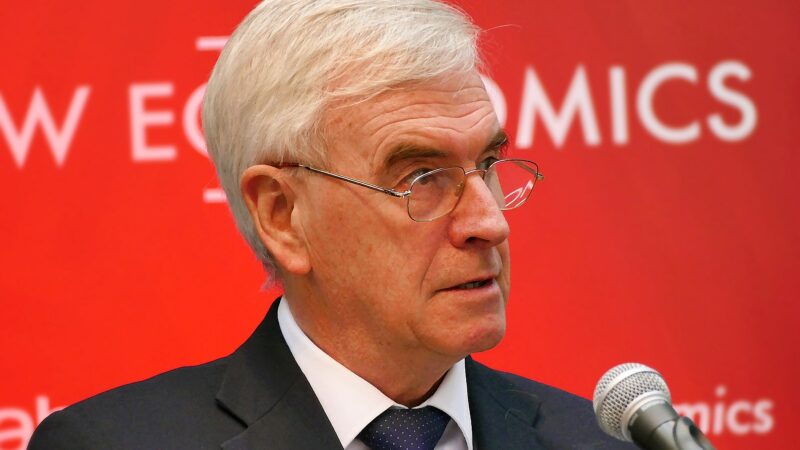The current tax system is built to work for the wealthiest

As the parties gear up for an election and set out their vision for a future government, there will be spending pledges aplenty. Although there is definitely room for more borrowing, taxes too should take centre stage.
But conversations about tax shouldn’t just focus on revenue raising but also economic justice. Income taxation is deeply flawed, placing the wealthiest at an unfair advantage.
Firstly, how much of your income is taxable varies wildly depending on how you came to receive it. Work – the means by which most of us pay our bills, is taxed more highly than any other source of income. Whereas, if you make a living from the buying and selling of houses, or from dividends from shares you inherited, you’ll pay much lower average rates of tax than most people working nine to five.
Perhaps not unsurprisingly, the arrangements we have suit the wealthiest – preferential tax treatment for the asset-rich has got to go. It’s a simple matter of fairness. All income should be treated equally. The current system facilitates tax avoidance as the wealthy are able to convert their income into forms which are more lightly taxed.
Second, income tax is a confusing muddle – a result of piecemeal reforms over the decades and not a terribly coherent system. There are 2 separate taxes on jobs and total income which push in different directions as income increases, as well as differing tax-free allowances and rates on different income sources.
Crucially, depending on how much you earn, the additional tax you pay on any further earnings (the “marginal rate”) varies sharply – creating so called tax cliffs. These cliffs are most dramatic at the very bottom and top of the income distribution.
Consequently, those on the lowest incomes looking to increase their earnings, , will find they’ll pay much higher rates of tax on that extra income, which combined with the withdrawal of in-work benefits means that workers may not be much better off. This unfairly penalises those striving at the bottom.
To prevent these damaging effects, the tax cliff edges should be smoothed out. This can be achieved by designing a formula based system that would mean that as you earn a bit more money you’d pay slightly more of that extra income in tax.
IPPR has modelled an illustrative scenario that would raise the same amount of revenue as the current system, whilst increasing the take home pay of anyone earning less than £44,800. The scale would start at just 2 per cent, before climbing steadily towards 50 per cent for those earning £100,000+.
However, there is a need to fund our vital public services and political parties will be searching for a way to fund their election promises. The above model could be adapted with a slightly higher starting rate of 6 per cent to raise at least £6bn per annum, whilst still benefiting over three quarters of taxpayers, reducing the squeeze on lower and middle earners.
If parties want to be really ambitious with public spending, they could alter the formula further to raise £15bn, whilst protecting those earning £37,500 or less from paying more tax than today and avoiding marginal tax rates above 50 per cent. These radical reforms to the tax system would all be progressive, raise some serious cash and crucially could attract a broad coalition of support.
Taxing income from wealth and work the same, together with the reformulation of the income tax schedule, would amount to a transformation of the taxation of income.
This proposal should warrant serious consideration for any future government hoping to make the public spending increases necessary to reverse nearly a decade of austerity.
Henry Parkes is a Senior Economist at the Institute for Public Policy Research.
Left Foot Forward doesn't have the backing of big business or billionaires. We rely on the kind and generous support of ordinary people like you.
You can support hard-hitting journalism that holds the right to account, provides a forum for debate among progressives, and covers the stories the rest of the media ignore. Donate today.




5 Responses to “We need to talk about income tax: the system is broken”
yes
Ok
Dave Roberts
Appropriate photo of a multi property owning tax dodger.
Tom Sacold
Good article as far as it goes. All income should not necessarily be treated equally. Income from investments, unearned income, should be subject to higher rates of tax. Also, income tax bands should be extended and narrowed to make the system far more progressive.
Tom Sacold
One point missed in the article is that if we stay in the EU then we probably won’t have the right to set our own taxes in ten years time.
Dave Roberts
Good point Tom.